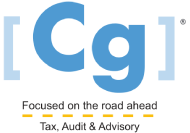No one likes surprises, especially when it comes to our hard-earned money. We do everything we can to prevent fraud, from keeping a close eye on our bank statements to being wary of suspicious emails. But no matter how well a business is run, there’s always the potential for fraud.
While some businesses are more likely to be targeted by fraudsters than others, no business is immune. That’s where business audits come in.
Business audits are an essential fraud deterrence tool. They provide an independent, objective assessment of a company’s financial statements and can help identify potential vulnerabilities that could lead to fraudulent activity.
While business audits are not a guarantee that fraud will not occur, they can help identify potential red flags and provide recommendations for mitigating those risks.
So, what goes into a fraud audit? And how can businesses make the most of them?
Read on to find out.
How Can Business Audits Help Deter Fraud?
As we mentioned before, business audits provide an independent, objective assessment of a company’s financial statements. This means they can help identify potential red flags that could lead to fraud.
For example, let’s say you run a small business and keep your books yourself. You’re confident in your bookkeeping skills, and you’re sure that everything is up to date and accurate. But then you get audited, and the auditor finds that some of your expenses are not properly documented. Your documentation is incomplete, and there are some discrepancies between your records and the bank statements.
While this doesn’t necessarily mean that fraud has occurred, it could be an indication that something is not quite right. The auditor will then make recommendations on how to improve your documentation and procedures to help deter fraud in the future.
Business audits can also help detect fraud that has already occurred. Let’s consider a scenario where you’ve been using a particular vendor for years, and everything has been going smoothly. Then you hire a CPA who offers business auditing services to do a routine audit of your financial statements.
During the audit procedure, the CPA discovers some unusual payments made to the vendor. These payments don’t match the invoices you have on file, and they’re for a much higher amount than what you usually pay.
After further investigation, the CPA discovers that the vendor has been overcharging you for their services and pocketing the difference. This is a case of fraud, and chances are, it may not have been detected without an audit.
Some other ways that business audits can be used as a fraud prevention strategy are:
Reviewing internal controls:
A properly conducted business audit can help identify weaknesses in internal controls that could lead to fraud. For example, if there are no procedures in place for how expenses are to be documented and approved, this could create an opportunity for fraud.
Identifying conflicts of interest:
In some cases, fraudsters can take advantage of their position within a company to commit fraud. If an employee owns a vendor that the company does business with, it’s a conflict of interest and should be avoided.
A business audit can help identify possible conflicts of interest and make recommendations on mitigating fraud risks.
Spotting irregularities:
Irregularities in your financial statements can be an alert for fraud. Let’s say you see a sudden increase in expenses without a corresponding increase in revenue. It may be a sign to investigate deeper.
Making recommendations:
After a business audit is complete, the auditor provides a report with their findings and recommendations. These recommendations help improve your internal controls and position you to deter fraud in the future.
Cg Provides Business Auditing Services
No matter what your auditing needs are or what type of business you run, Cg is here to help. We offer a wide range of business auditing services, from routine financial statement audits to fraud deterence audits.
Contact us today to learn more about how we can help you mitigate fraud and improve your business operations.

